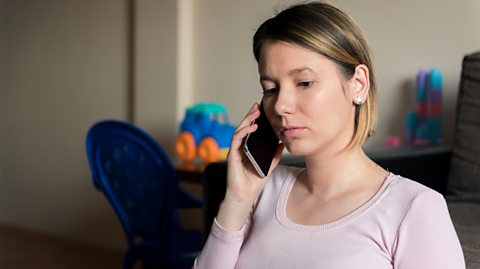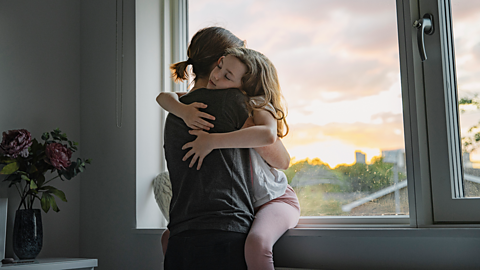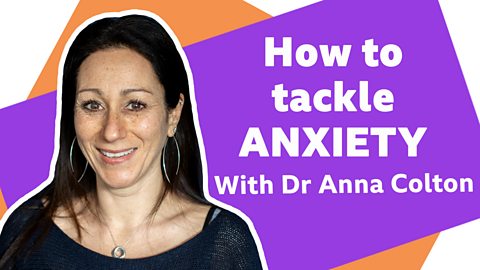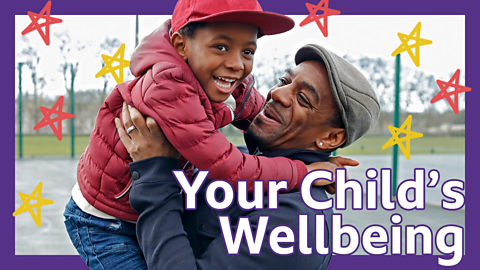According to charity The Mental Health Foundation, mental health problems affect around and include things like depression, anxiety and conduct disorder (a type of behavioural problem). The charity says eating disorders and self-harm also commonly occur in children.
A ParentsтАЩ Toolkit opinion poll, commissioned in partnership with parenting website Netmums, revealed that nearly 1 in 3 parents have noticed a deterioration in their child's mental health over the 6 months before being polled and while 50% of parents would ask a health practitioner/teacher or other qualified expert for help - of the respondents who said their child has experienced challenges with their mental health - 37% said тАЬI have experienced barriers in seeking help for my mental health issue in my child.

How you can support your child's mental health
1. What to do when youтАЩre concerned about your child's mental health

You may have noticed changes in your child - changes of mood, altered sleeping patterns, withdrawal from family life and/or friendship groups. These could be signs that they're experiencing anxiety or other issues around their mental health.
If you're concerned about your childтАЩs mental health, you can speak to their school or GP. The GP may refer your child to Child and Adolescent Mental Health Services (CAMHS), which provides specialist care from psychologists, psychiatrists, nurses and social workers. Between 2020-2021 the average wait for mental health services in England was more than two months.
Here are some things you can do whilst you and your child are waiting to access these services.
- Keep speaking to your GP
Your GP will be able to regularly listen to your child, discuss your own concerns and suggest local services that may be of help. Don't be afraid of going back to your GP if you feel you need more support and advice.
- Speak to your childтАЩs school
Arrange to meet the pastoral team at your child's school, or encourage your child to seek out and speak to them. They might be able to help make school easier or less pressured for your child.
- Look into local services
Local charities can be a good source of support. Search online for nearby support groups and charities. Alternatively, national mental health charity Chasing the Stigma runs the тАШтАЩ website, which allows you to search easily for local mental health charities.
- Try and stay healthy
Where possible, try and encourage your child (and your whole family) to eat healthily, get some exercise and a good nightтАЩs sleep. If theyтАЩre having trouble sleeping, gentle activities like reading, walking or drawing and art may help them to relax.
2. What to do in a mental health emergency

, a mental health emergency is when your child feels like they may seriously harm themselves or someone else, they feel suicidal or are in extreme distress. There are different services you can access, depending on the severity of the situation. They are listed below from less severe to the most severe scenario.
- Call or text a charity
If your child is under 19 and needs to talk to someone, they can call on 0800 1111. Or they can text YM to 85258 for free 24/7 support. You can also call the .
- Call a local NHS urgent mental health line
in England are free and can offer 24-hour advice and support for your child. You can speak to a mental health professional about your child and get an assessment to help decide on the best course of care. In Scotland has links to services, while people in Wales can access and in Northern Ireland there is . To find one local to you, type тАШlocal urgent mental healthтАЩ into your search engine.
- Call 111
If you cannot speak to your local NHS urgent mental health helpline or youтАЩre unsure what to do, call 111. This number is for when you urgently need help for your childтАЩs mental health, but it isn't an emergency. You may be able to ask for an emergency appointment or speak to a mental health nurse over the phone.
- Call 999
If your child or someone elseтАЩs life is at risk, call 999. For example, if they've taken an overdose or seriously injured themselves, or if you don't feel you can keep yourself, your child or someone else safe.
This is really important. The NHS website states: тАЬA mental health emergency should be taken as seriously as a physical one. You will not be wasting anyone's time.тАЭ
3. General tips for helping your child through a mental health crisis

Try to remain calm and positive with your child. Remember to be kind to yourself too тАУ if you do lose your patience, apologise to your child and forgive yourself. Every child is different so youтАЩll need to tailor your actions depending on the age of your child and their particular circumstances.
- Try to keep to 'life as usual'
Keep everyday routines going where possible. Be realistic about what you can achieve. Talk to your child and agree with them about how best to let the important people in your childтАЩs life know what is happening with them.
- Make a plan together
Keep it simple, a day at a time in manageable steps, so today is better than yesterday. Focus on what helps and avoid what doesn't. Try and stick to the plan, making sensible changes as you go along. Make a plan for emergencies too, so that you all know what to do if it's needed.
- Keep listening to them
It's important to listen to your child, rather than necessarily offering advice. Follow your childтАЩs lead and encourage them to share so that they know you really understand. Speaking less and listening more helps you understand how your child feels, and helps them know you realise what theyтАЩre going through.
- Look after yourself
Take care of your own wellbeing so that you can be there for your child, especially when everyone is having a hard time. Talk to other adults about your worries and frustrations, but try not to overshare with your kids.

For more advice on looking after your familyтАЩs mental health, there are some useful tips in this series of animations , developed by KingтАЩs College London, South London and Maudsley NHS Foundation Trust and The Maudsley Charity.
There are other helplines, textlines and online services available that you and your child can look at together:
- тАУ offers support to anyone under 25
- тАУ can help families locate local support services
- тАУ a peer support forum for young people, which is moderated and anonymous
- The │╔╚╦┬█╠│ Headroom campaign and the │╔╚╦┬█╠│ Action Line both have links to lots of helpful content and services.
This article was published in October 2021

More from │╔╚╦┬█╠│ Bitesize Parents' ToolkitтАж
Parents' Toolkit
Fun activities, real-life stories, wellbeing support and loads of helpful advice - we're here for you and your child.

Child mental health: Parents have their say
How do parents feel about mental health in 2022? Read about the results of our survey, in partnership with Netmums, here...

Making a mental health support network to help you & your child
Advice on reaching out for help for you and your child. With tips from mental health charity Young Minds.

How to tackle anxiety with Dr Anna Colton
Dr Anna has made seven short films with easy to learn techniques.

Thoughts and feelings getting your child down? Help for them to know when to seek help
If your child's thoughts and feelings are getting them down, Bitesize Support have provided some advice about when to seek help.

